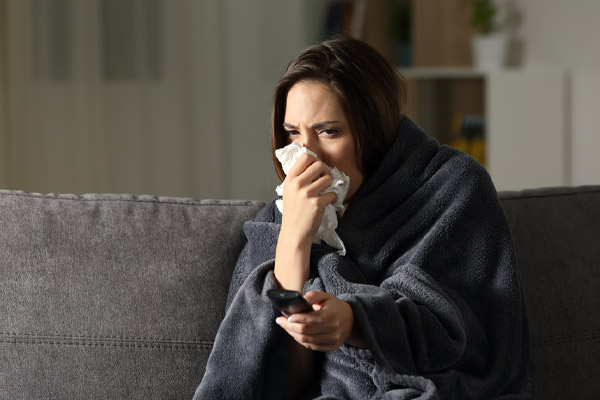
Many people are apprehensive about going outside during winter, but being inside may not guarantee they will be comfortable. It may even be worse indoors as indoor air quality drastically drops when the temperature plunges. Read on to learn why this happens, how it affects our health, and how to improve your winter indoor air quality.
9 Ways You Can Improve Indoor Air Quality During Winter
Contents
- 1 9 Ways You Can Improve Indoor Air Quality During Winter
- 2 How To Improve Indoor Air Quality During The Heating Season
- 2.1 Maintain Cleanliness At All Times
- 2.2 Have The HVAC Ductwork Inspected
- 2.3 Install Air-Heat Exchangers
- 2.4 Stop The Pollutants At The Source
- 2.5 Regularly Replace Your Air Filter
- 2.6 Dial-Up The Ventilation Where Needed
- 2.7 Consider Investing In An Air Purifier
- 2.8 Increase Humidity As Needed
- 2.9 Learn More About A Filter Upgrade
- 2.10 Conclusion
- 3 Call PFO Heating & Air Conditioning For All Of Your HVAC Requirements
No one should feel helpless when facing toxic air in their home. This is a known problem with proven solutions. It can be resolved so that the home becomes better for the health of the occupants. This article helps you understand what is happening and tips for improving your air quality. These tips can help make staying inside your home a more pleasant experience through the winter.
Why Indoor Air Quality Gets Worse In Winter
HVAC systems can be expensive to operate. They need a high amount of energy to maintain ideal indoor conditions. It has become popular to have highly insulated homes as they are more efficient, resulting in lower energy costs. This airtight design stops warm air from getting out, so the heating unit doesn’t work harder than before. However, this can result in the accumulation of unwanted particles inside the house if the homeowner isn’t proactive. Some of these accumulated indoor air particulates include dust, chemical fumes, pollen, mold spores, and volatile organic compounds. If the homeowner isn’t proactively changing their air filter, for example, the redistributed air via your HVAC system carries these particles throughout your home, to your detriment. Indoor air also likely becomes drier during winters, making the environment uncomfortable.
How Poor Indoor Air Quality Impacts Our Health
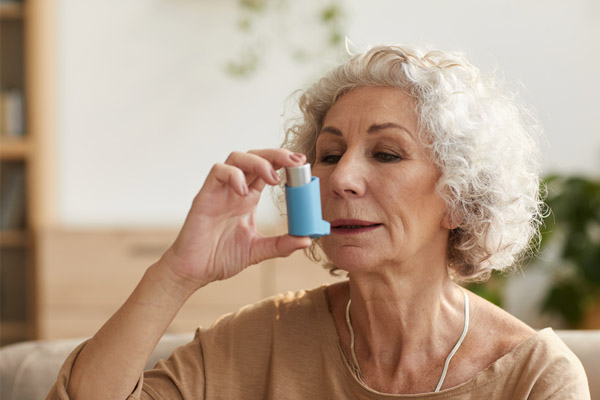
The impact on our health varies depending on how severe the problem is and how long the exposure was. Poor indoor air quality may not be too much of a problem for visitors, but it can significantly affect the home’s occupants. This is because they are constantly exposed to pollutants inside the house. Here are some of the ways this can affect human health as per the US Environmental Protection Agency:
- Mild Irritation: People may experience eye, nose, and throat irritation after exposure. People with allergies to particles in the environment will experience a greater effect. Most cases will see the problem going away after the affected person leaves the premises.
- Chronic Fatigue: If you live in a home with bad air quality, contaminants may overwhelm your immune system. You and your family may find yourselves complaining about headaches and dizziness. They may also experience chronic fatigue, which will have a negative impact on their overall well-being.
- Respiratory Disease: People with existing respiratory illnesses may find that they are getting worse. The pollutants can trigger asthma and other conditions, so they must be ready to deal with them.
- Cancer: Some air particles may be carcinogenic. An example is Radon, a substance that can cause lung cancer. Research is being done regarding other compounds’ possible links to cancer.
- Death: Some toxic gasses, such as carbon monoxide, can be fatal even if you are exposed only for a short period. CO is a byproduct of combustion and cannot be detected with our senses alone.
How To Improve Indoor Air Quality During The Heating Season
Here are several ways you can improve your indoor air quality during the coldest months of the year:
Maintain Cleanliness At All Times
Dust usually settles on various surfaces, but it can float again and impact individuals if disturbed. Dust and vacuum around your home regularly to lessen the chances of this happening. Ensure you wear the proper protection when cleaning, like air filter masks. You may also use other non-toxic cleaning products.
Have The HVAC Ductwork Inspected
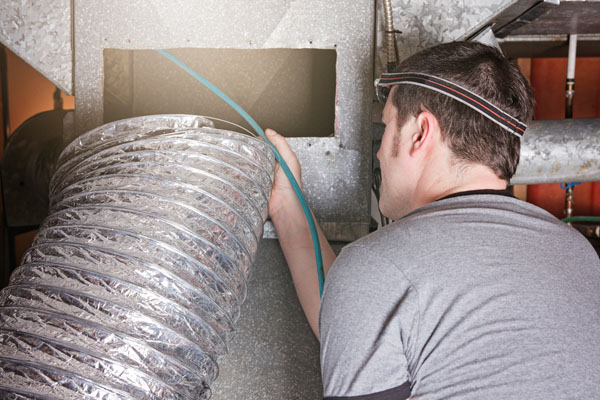
The ductwork distributes conditioned air throughout your home. Unfortunately, dirt build-up can happen inside it over time, reducing indoor air quality. Have an HVAC professional inspect the ducts’ condition. They may also find and repair leaks and clean the interior.
Install Air-Heat Exchangers
Air-heat exchangers eliminate the polluted air inside your home and replace it with fresh air from outside. They do this without energy use to heat the incoming air so you achieve an economical solution.
Stop The Pollutants At The Source
Determine the primary pollutant sources so you can resolve them. Main sources may include toxic cleaning solutions, old heating units, and dangerous building materials. Ask an HVAC professional to inspect your home so they can tell you what they find and help you resolve them.
Regularly Replace Your Air Filter
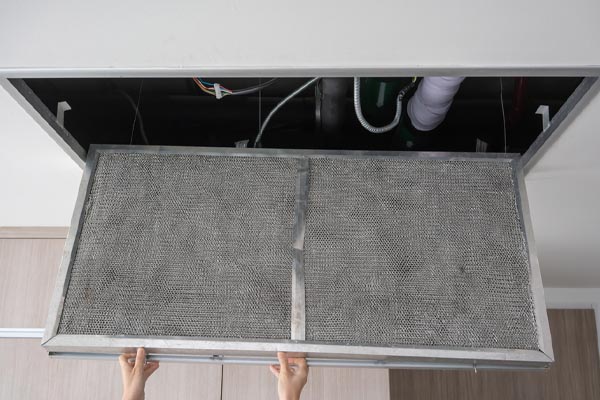
HVAC systems are equipped with air filters to catch unwanted particles. They are your system’s first protection against pollutants, but they only work for a certain time before they become overwhelmed. Habitually conduct filter replacement per the manufacturer’s recommended schedule. Remember that the schedule of filter replacement differs from house to house. For instance, you must replace the air filter more often if you have pets. It is best to conduct monthly air filter checks and replace them as necessary.
Dial-Up The Ventilation Where Needed
Check for any symptoms that can point to poor ventilation, such as wall condensation, unusual smells, and mold. These signs may be worse in some rooms, so focus on them. Kitchens and bathrooms usually need great ventilation. Have adequate ventilation during home improvement projects, especially when sanding and painting surfaces.
Consider Investing In An Air Purifier
The HVAC system’s built-in air filters may be insufficient at times. Therefore, you may want to use an air purifier to better capture airborne particles. Some models feature activated carbon filters that can get rid of odors and kill pathogens. Consult your HVAC contractor regarding solutions that can work together with your heating and cooling system.
Increase Humidity As Needed
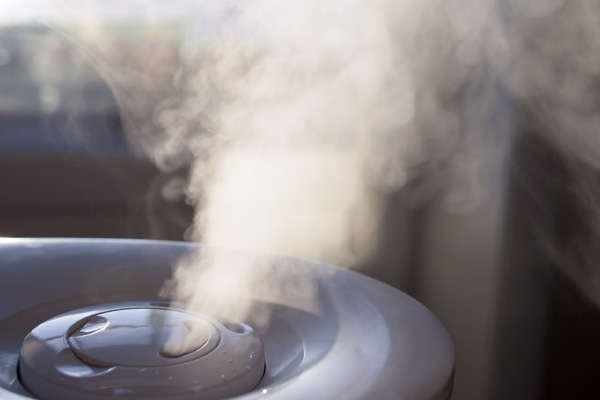
Winter can have very dry air. You may experience dry nasal passages and throats as a result. You can utilize a humidifier to increase your home’s humidity until its level becomes normal again. Consult your HVAC contractor regarding whole-house humidifiers.
Learn More About A Filter Upgrade
Basic filters can only trap large airborne particles, letting smaller ones pass through and cause issues inside your home. This can be resolved with a high-efficiency filter. However, remember that this upgrade may mean you must also conduct additional changes to the system to have smooth airflow. Consult your HVAC technician regarding this matter.
Conclusion
Winter doesn’t mean that people in residential, commercial, and industrial buildings have to suffer. They can implement the improvement tips listed here to ensure better indoor air quality. This way, you can enjoy a more pleasant winter. Call reputable HVAC technicians for assistance so these improvements can begin immediately.
Call PFO Heating & Air Conditioning For All Of Your HVAC Requirements
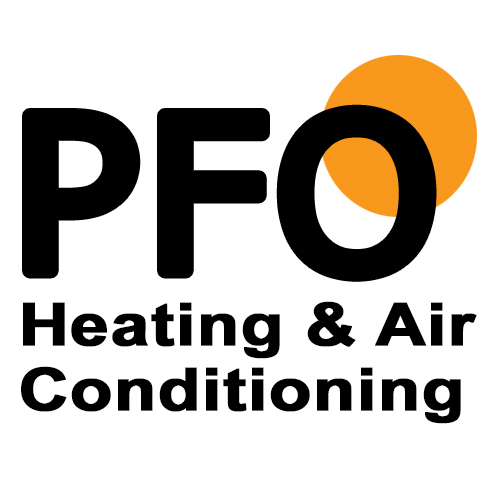 When you need superior heating and cooling services in the Greater Princeton, NJ area, call PFO Heating & Air Conditioning. We have the best professionally certified technicians who can conduct high-quality HVAC maintenance, installations, replacements, and repairs. All our friendly techs have the experience and knowledge to conduct accurate and prompt HVAC system services.
When you need superior heating and cooling services in the Greater Princeton, NJ area, call PFO Heating & Air Conditioning. We have the best professionally certified technicians who can conduct high-quality HVAC maintenance, installations, replacements, and repairs. All our friendly techs have the experience and knowledge to conduct accurate and prompt HVAC system services.
If you need highly affordable heating and cooling service prices in the area, call PFO Heating & Air Conditioning. Our maintenance service can help you achieve better comfort and energy efficiency while lowering your HVAC expenses. We can recommend the best HVAC repair or replacement system within your budget. All our work is guaranteed to ensure your satisfaction. Book a service appointment with PFO Heating & Air Conditioning today. Call us for a free, in-home estimate.
Click here to contact us now or call us at (800) 253-9001 to find out more!



